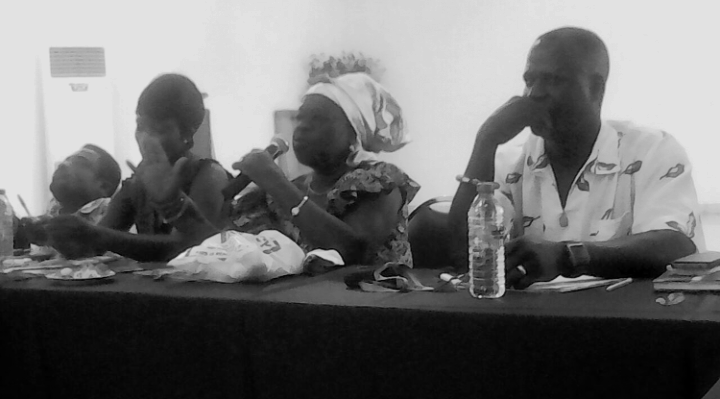
Forum discusses family planning services among teenagers
One critical issue that became topical at a stakeholders’ forum on adolescent health in Ho was the issue of whether or not teenage girls from 14 to 19 should be allowed access to family planning services even before they become mature for family life.
The discussions, which focused on how to address the alarming rate of teenage pregnancy, abortions and sexually transmitted diseases with the aim of promoting and sustaining adolescent health, generated critical and interesting issues.
The forum was organised by a non-governmental organisation, Marie Stopes International Ghana, in collaboration with Ghana Health Services under the “No Yawa” Project.
Increasing cases
It was observed that despite the numerous education on the topic, a number of teenage girls were still getting pregnant with the figures increasing year after year instead of an expected decrease.
According to records from the regional health directorate for 2015, the Volta Region, for instance, recorded about 15.1 per cent of antenatal attendants being teenagers below 19, almost a one per cent increase of what was recorded in 2014 (14.5 per cent).
Per the records, out of 10,301 teenagers who got pregnant in 2015, 349 of the girls were between the ages of 10 and 14.
Also for abortion, a total of 567 cases were recorded, with 39 of the girls aged between 10 and 14. Seven teenage maternal deaths were also recorded in the same year.
The situation has caused health authorities in the region to declare war on teenage pregnancy this year.
The issue of family planning for teenagers, though controversial, was, therefore, critically examined to assess the benefits and weaknesses of choosing such a path to be able to arrive at a decision that could help find a remedy for issues concerning adolescent health.
Loss of lives
Teenage pregnancy and abortions, which sometimes claim the lives of these adolescents, have become a national problem because the issue of children becoming parents comes with great cost not only to the parents or guardians but society at large.
Another problem was that due to lack of education, some of the girls abused the contraceptives which later in life created fertility problems for themselves.
The participants agreed that it was important for teenagers to be given proper sex education in this modern age where they were able to access all kinds of information, especially through the social media and other platforms.
The time, they noted, had come for teenagers to have full knowledge of all the family planning services available at the health facilities and also to be assisted to make the right options that would not have any negative effect on them in future.
Consensus at forum
The consensus at the forum was that, once teenagers were able to ask questions about sex and could access family planning services in the health facilities whenever they wanted, there would be an assurance of stability in their education as they could further their education without any hindrance, have good adolescent life and also investments made on them by family and the nation would not go waste.
On criticisms, especially by religious leaders, that allowing teenagers to get contraceptives would rather encourage them to become sexually active or promiscuous and, therefore, the best way to go is to preach abstinence, the Deputy Director of Nursing Service in charge of Public Health in the Volta Region, Madam Joan Eleeza, said, “We have gone beyond issues of abstinence because our children are having sex with or without our knowledge and, therefore, we need to protect them.”
Sexually active teenagers
Already, some of the sexually active teenagers are patronising family planning services but at a low pace. Another problem was that, due to lack of education, some of the girls abused the contraceptives which later in life, created fertility problems for them, she said.
“That is why I think we need to open up on these issues to protect our girls,” Madam Eleeza said.
The South Eastern Zone Manager of Marie Stopes, Mr Osumanu Seidu, also argued that abstinence had not been a solution to curbing teenage pregnancy, abortion or STDs infections so the best way was to look for alternatives to reduce the canker.
“We have been preaching abstinence for many years but the reality is that our teenagers are not abstaining, that is why the cases of teenage pregnancy and abortion are on the increase” he said.
According to Mr Seidu, “unsafe abortion is a killer more than HIV”, adding that “not even an atomic bomb will stop a girl who wants to do an abortion from doing so”.
Stakeholders’ involvement
He recommended that the Ghana Education Service (GES) and the GHS with other stakeholders should team up to equip the teenagers, especially those in the rural communities, with the necessary information on sex life and encourage them to use the available services when the need arose.
The Queenmother from Adaklu-Waya, Mama Dzakua II, said service providers should not shun teenagers, they should be accommodative and friendly and through that take them through education and if the need arose, assist them to make the right choices.
She said if they did not give them audience but scorned them, they could feel embarrassed and prefer to go to persons who were not knowledgeable about these issues “and the consequences would not be good for us”.

